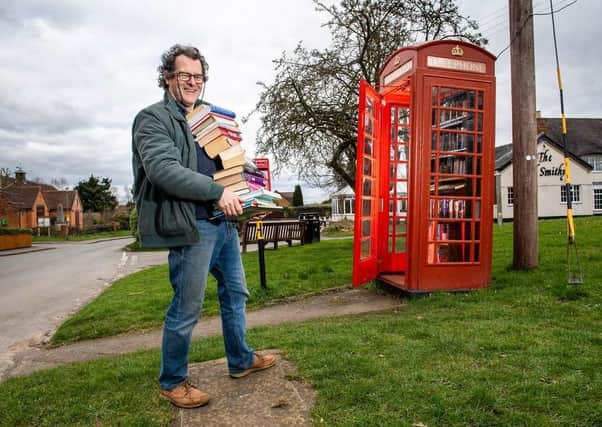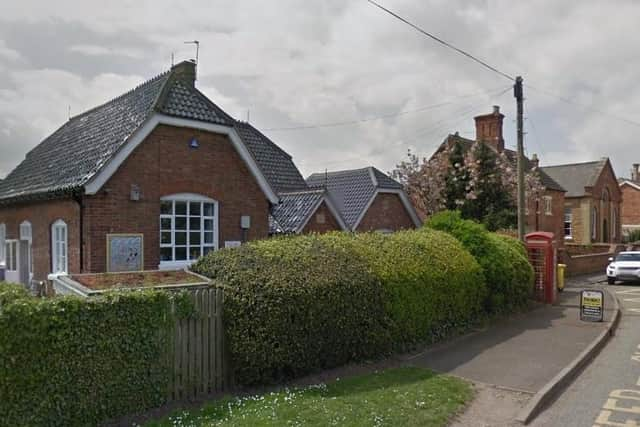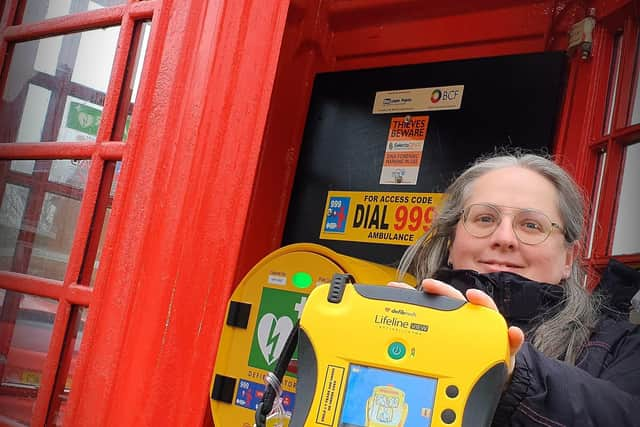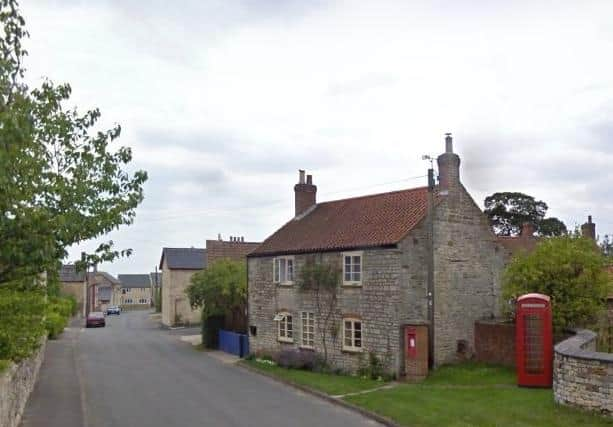Villagers invited to adopt phone boxes as community resources


BT has this week made available more than 200 of its iconic red telephone booths across the East Midlands because few calls are now being made in them due to most people using mobile phones.
And six of them are in villages close to Melton - Main Street at Sproxton, Church Lane in Saxby, Nottingham Road at Ab Kettleby, Burrough Road in Somerby, Main Road at Redmile plus Post Office Lane in Plungar.
Advertisement
Hide AdAdvertisement
Hide AdThe ones at Saxby and Redmile are listed features which means they are protected from being demolished or removed.


Already in this region in the last 13 years, 784 phone boxes have been adopted as community resources ranging from from defibrillator units and mini history museums to art galleries and book exchanges.
BT say they will consider all adoption requests for phone boxes but there may be occasional reasons why a particular kiosk may not be able to be adopted, for example if it is required to be retained by the company for another purpose.
Sarah Walker, BT Enterprise unit director for the midlands, said: “With most people now using mobile phones, it’s led to a huge drop in the number of
calls made from payphones.


Advertisement
Hide AdAdvertisement
Hide Ad“At the same time, mobile coverage has improved significantly in recent years due to investment in masts, particularly in rural areas.
“We’re currently rationalising our payphone estate to make it fit for the future, and the ‘Adopt a Kiosk’ scheme makes it possible for local communities in the East Midlands to retain their local phone box, with a refreshed purpose for the community.
“Thousands of communities have already come up with a fantastic array of ideas to re-use their beloved local phone box.
“Applying is quick and easy and we’re always happy to speak to communities about adopting our phone boxes.”


Advertisement
Hide AdAdvertisement
Hide AdMany phone boxes in Melton and surrounding villages have benefited from having defibrillators in them a device which is capable of giving a reviving electric charge to people who have suffered cardiac arrest.
BT will also consider adoption requests to house defibrillators in modern glass phone boxes.
The Community Heartbeat Trust charity works with the company and local communities to install the devices in kiosks.
Martin Fagan, the charity’s national secretary, said: “BT’s phone box kiosks are iconic British structures, and repurposing for this life saving use has given them a new lease of life.
Advertisement
Hide AdAdvertisement
Hide Ad“To date, we have converted about 800 ourselves, with another 200 in the pipeline.
“Placing the equipment in the heart of a community is important to save on time.
“Kiosks are historically at the centre of the community, and thus great locations for defibrillators.”
Edith Weston, near Rutland Water, is one of the villages which has had a defibrillator installed in a redundant phone box, in Derwent Avenue.
Advertisement
Hide AdAdvertisement
Hide AdCathie Gwilliam, clerk to the parish council, said: “I would urge other communities to consider their local phone box for this purpose as once they are gone, they are gone forever.
“We hope we never have to use the defibrillators but it’s reassuring to know that they are there.”
Among the five phone boxes available in Rutland is the one on Main Street, Market Overton, while in the Rushcliffe district of Nottinghamshire, there is one on Church Street in Granby.
Communities can adopt a kiosk if they are a recognised public body, such as a parish council, community council or town council.
Advertisement
Hide AdAdvertisement
Hide AdBoxes can also be adopted by registered charities or by individuals who have a payphone on their own land.
BT will continue to provide electricity (if already in place) to power the light for adopted phone boxes, free of charge.
For further details on how to apply to Adopt a Kiosk, simply go to www.bt.com/adopt where application forms and more information can be found.
As part of plans to modernise its payphone estate, over 400 payphones across towns and cities have also been upgraded by BT to digital units, called Street Hubs, offering free ultrafast public WiFi, free UK phone calls, USB device charging and environmental monitoring.
Advertisement
Hide AdAdvertisement
Hide AdBT’s Street Hubs also play a role in sharing public information, for example during the Covid-19 pandemic Street Hub units across the country displayed key advice from Public Health England and local councils.